 How long should a book be if the author wants it to sell? I had better state up front that I’m not going to attempt to actually provide a definitive answer to the question I have posed. I’m entering into what might be regarded as a philosophical discussion on the subject and any views I express are merely opinions. But it is quite an important question because the answers, right or wrong, may strongly influence whether or not a reader actually purchases a book. If you use Google to try to find the answer you’ll get various opinions. But, generally, a novel is expected to be between 80,000 and 120,000 words. This is based on hard copy books, of course. Less than 80,000 words and it’s going to look pretty malnourished sitting on the bookshelf in W H Smiths (or Barnes and Noble) alongside its fatter neighbours. Size gives an impression of value for money, even if it is no guarantee of quality of writing. 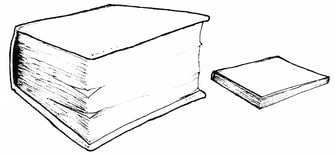 Once you get over 120,000 words, however, the publisher has a different problem. Paper costs money and profits will be reduced if publishers have to spend more money on paper but still have to charge the same price for the book in order to remain competitive. Most books sell at the same retail price regardless of size; about £18.99 (call it $20) for a hardback book and £9.99 for a paperback. Those prices are for bestselling authors, of course. Kindle books can run from 99p right through to marginally less than the price of a paperback, depending on how famous the author is. There is also a psychological factor. A thick book looks challenging. Maybe it’s so thick because the author has used a lot of big words. Maybe it will take too long to read and I’ll get bored with it. Maybe it’s so long because it’s very complex and I don’t want to spend a lot of time unravelling a complicated plot. Who knows what people might think when faced with a thick book! 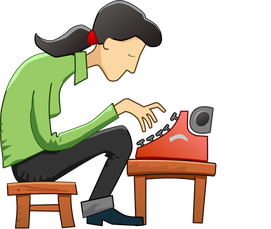 While it would be nice to think that readers buy books solely based on the quality of the writing there has to be other factors involved. It can be the only explanation for some of the dross that makes it into best seller lists alongside much better written books and why some very good books never make it. For example, let’s say that a new author publishes their very first book. None of the reading public will ever have seen the author’s name before and can’t have read any of the author’s work, so how will they decide whether or not to buy the book? There is no doubt that marketing plays a big part in this. If the author is published by a major publishing house the publisher will put a lot of money into getting the name of the book out there in front of the reading public. Adverts have to be paid for; review copies have to be sent to newspapers, magazines, radio and TV stations etc. Authors are sent on book signing tours etc. 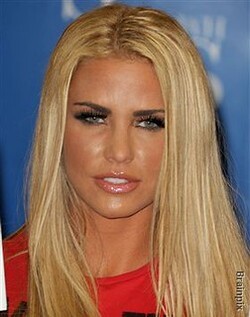 Best selling "author" Katie Price Best selling "author" Katie Price Based on the marketing blurb, readers may take a chance and shell out some of their hard earned, but in effect they are buying the publisher, not the book. And it works; Katie Price has sold a lot of very poor-quality books. Well, her ghost writers have anyway; she just gets the lion’s share of the royalties. But that doesn’t account for why some books released by smaller publishing houses, or even self-published books, also make it into best seller lists despite the minuscule amount of money spent on marketing them. The readers’ decision won’t be based on the quality of the author’s writing because, with a first book, they can’t have read any previous work on which to base that decision. It is also unlikely to be based solely on the few pages that Amazon allows the potential buyer to read using their “look inside” feature. As both a reader and an editor I know that a promising first few pages doesn’t necessarily lead to 300 good pages. Many authors, even quite well-established ones, are unable to maintain their writing quality for that long and some start to stumble after just 20 or 30 pages. By 50 pages I’ve already binned the book and gone looking for something better written. 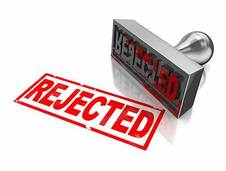 Some Indie authors will already be aware of this phenomenon. Having submitted an extract as per an agent’s submission guidelines, they get a request for the full MS. They are elated, naturally, but then brought down to Earth with a bump when the full MS gets rejected. Learn from that – because what the agent is effectively saying is that you couldn’t maintain a consistent quality of writing for a full-length book. So, if the decision isn’t going to be based on the quality of the writing, what is it going to be based on? You would think that price might have something to do with the decision, but it doesn’t appear to do so. When it comes to the price of books we live in a strange world. A pint of beer costs around £4 and a large glass of wine (is there any other sort?) over £5. A self-published e-book, however, will retail for anywhere between 99p and £5 depending on the author’s knowledge of pricing strategies and their vanity. Now, which is going to last longer and offers more potential for enjoyment, the pint of beer/glass of wine or the book?  Well, let me put it this way. In my experience, after 6 months I find it easier to recall a good book (or even a bad book) than I do to recall the qualities of a specific pint of beer or a specific glass of wine. There is another factor involved here as well. If I really enjoy a book, I may go back a few months or years later and read the same book a second time. I’ve read Lord Of The Rings far more times than is healthy for a grown man. But I can’t go back and enjoy the same pint of beer or glass of wine again, not for free anyway – I have to buy another one and, thanks to inflation, it will cost more. So, if people won’t shell out the paltry sum of 99p to read an author’s first book what other factors are there? 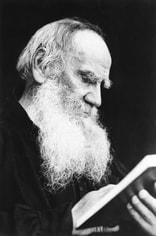 Leo Tolstoy Leo Tolstoy I go back to my argument about the word count. Is the reader truly getting value for money, or will they feel intimidated by the “thickness” of it? War and Peace is about 590,000 words long. When Tolstoy first had it published it was released in 4 volumes and a 2 part epilogue. If you want to buy a modern copy it would be more likely to be published as a single volume. In value for money terms you would think that it would be flying off the bookshelves, but it isn’t. Why not? It’s an acknowledged masterpiece after all. Well, perhaps people feel intimidated by its size. Let’s look at a more modestly sized classic, also by Tolstoy: Anna Karenina. Not many sales for that these days though it is perhaps one of the greatest romantic stories ever told. Length? 350,000 words. Hardly lightweight. Remember, I am also talking about e-books here, where you can’t “see” or feel the thickness of the book. 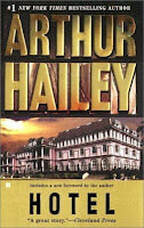 But you can. Because Amazon helpfully tells you, as part of their product description, how many pages long the book is As a guide, 80,000 words gives you a paperback book of about 290 pages, so 120,000 words would be about 435, big enough to qualify as a “blockbuster” in the Arthur Hailey mould. The sort of book that will not only last you for a whole holiday, but also for the cancellation of your flight due to a volcanic eruption and a 24 hour rail strike when you get back to the UK. The Kindle version of Arthur Hailey’s “Hotel” is actually 485 pages long. Perhaps that’s why he rarely features in the best seller lists any more. That and the fact that he died in 2004. 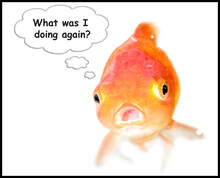 The sad truth is that the attention span of some readers isn’t that great. They’ll read 300 pages but 301 will defeat them. That presents the author with something of a problem. Do you disregard those readers and concentrate on those that will stay the course, in which case you are placing an artificial ceiling on your sales volume. Or do you take another course of action? Maybe you do what many authors are doing these days and write your books as a series; telling the story in 300 page chunks. You wouldn’t be the first: remember Tolstoy and War and Peace? It’s now common practice and one I have adopted for 2 separate series I have written. There can be no doubt that the margins for success for the new author are very narrow and seemingly quite arbitrary. It therefore makes sense, to me at least, not to do anything that might put the potential reader off buying a book and that includes thinking about exactly how long the book should be. Let’s face it, the average story could be told on a single page of A4, yet we expect a bit more than that. So the book should be neither too short (poor value for money) nor too long (too “weighty”). For me that means between 80 and 90,000 words. It’s entirely up to other authors where they draw their lines. If you have enjoyed this blog, or found it informative, be sure not to miss an edition by signing up for our newsletter. Just click the button below. And if you do - we'll send you a free ebook of your choice (from those we publish, not from the entirety of the publishing world).
0 Comments
Leave a Reply. |
AuthorThis blog is compiled and curated by the Selfishgenie publishing team. Archives
March 2025
|
 RSS Feed
RSS Feed